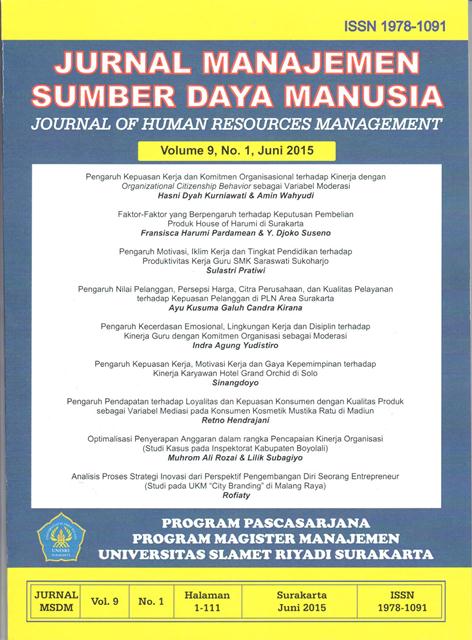OPTIMALISASI PENYERAPAN ANGGARAN DALAM RANGKA PENCAPAIAN KINERJA ORGANISASI (Studi Kasus Pada Inspektorat Kabupaten Boyolali)
Abstract
The purpose of this study was to determine the factors that affect the absorption of the budget, and how the budget absorption that could affect the achievement of the performance, however, the formulation of the problem in this research is yet more evidence of the empirical or has not known how the relationship between the absorption to the achievement of performance at public sector organizations, whether minimal absorption causes the achievement of maximum performance is not or vice versa. This research method is to use exploratory analysis with analysis of cases in Boyolali District Inspectorate. The data in this analysis is the Laporan Realisasi Anggaran (LRA) and Laporan Akuntabilitas Instansi Pemerintah (LAKIP) Inspectorate Boyolali. Results from this study showed that the absorption has a maximum budget made, high absorption will improve performance achievements, but in the gains that have been obtained can not describe the results of the value of outcomes, benefits and impact of absorption that has been done. Thus Inspectorate need to make budget planning and performance of the measurements that can be compared. Keywords: Budget, Performance, Accountability, Government, Public SectorDownloads
Published
2015-08-20
How to Cite
Lilik Subagiyo, M. A. R. (2015). OPTIMALISASI PENYERAPAN ANGGARAN DALAM RANGKA PENCAPAIAN KINERJA ORGANISASI (Studi Kasus Pada Inspektorat Kabupaten Boyolali). JAMASADA: JURNAL MANAJEMEN SUMBER DAYA MANUSIA, 9(1). Retrieved from https://ejurnal.unisri.ac.id/index.php/Manajemen/article/view/1005
Issue
Section
Artikel
License
Authors who publish this journal agree to the following terms:
- Authors retain copyright and grant the journal right of first publication with the work simultaneously licensed under a Creative Commons Attribution License that allows others to share the work with an acknowledgement of the work's authorship and initial publication in this journal.
- Authors can separately make additional contractual arrangements for non-exclusive distribution published by the journal (e.g., publish it in a book), with an acknowledgement of its initial publication in this journal.
- Authors are allowed and encouraged to send their work via online (e.g., in the institutional repositories or their website) after published by the journal.













 Â
 
